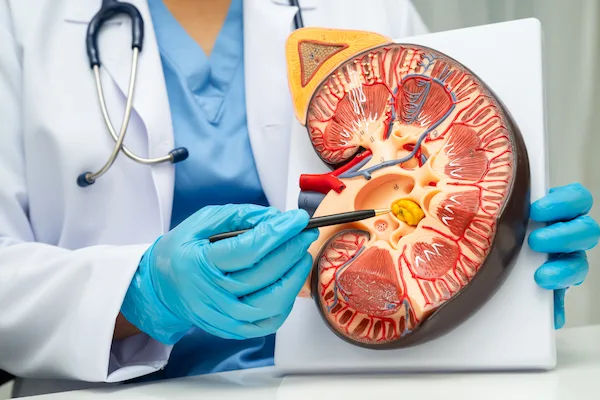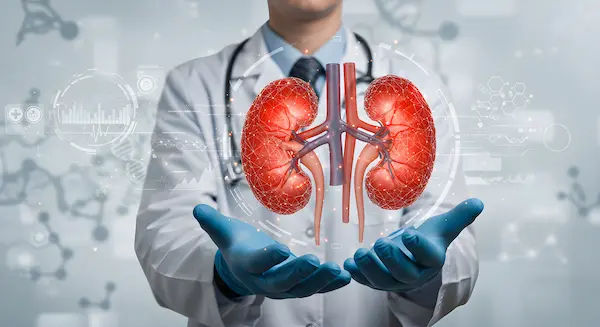Feeling tired all the time
Feeling tired all the time? Discover which lab tests can help uncover the hidden causes of fatigue—like nutrient deficiencies, thyroid issues, or hormonal imbalances—and how to book them easily online.

Written by Dr. Dhankecha Mayank Dineshbhai
Reviewed by Dr. Siri Nallapu MBBS
Last updated on 9th Sep, 2025

Many people wake up tired and stay tired all day, even after a seemingly good night's rest. If you're constantly feeling low on energy, struggling to concentrate, or just dragging yourself through the day, you're not alone, and you're not imagining it either. While occasional tiredness is normal, persistent fatigue could be your body's signal that something deeper is going on.
Modern life is characterised by stress, long work hours, and inconsistent sleep patterns. However, when fatigue becomes a constant issue, it's worth looking beyond lifestyle. Often, underlying health conditions such as anaemia, thyroid dysfunction, or vitamin deficiencies may be silently contributing. A few simple blood tests can help uncover hidden issues and aid in regaining your energy.
What Could Be Causing Your Constant Tiredness?
Feeling tired isn't always just about late nights or busy schedules. In many cases, there's a deeper issue behind the fatigue. Some of the most common medical reasons include:
- Deficiencies in key nutrients like iron, Vitamin B12, or Vitamin D
- Thyroid imbalances that affect your metabolism
- Irregular blood sugar levels cause energy crashes
- Hormonal shifts impacting sleep, mood, or stamina
- Ongoing infections or undiagnosed inflammation
- Problems with liver, kidney, or other organ function
- Mental health challenges such as stress, anxiety, or depression
Because these issues can cause overlapping symptoms such as foggy thinking, low mood, or muscle weakness, it's easy to miss the real cause. Rather than guessing, simple diagnostic tests can offer clarity and help guide the proper treatment.
When Is It Time to Test for Fatigue?
Tiredness is normal at times, but if it's becoming a daily struggle, it may be worth investigating further. You should consider testing if:
- You still feel tired even after getting enough sleep
- Simple everyday tasks leave you feeling dizzy or weak
- Your focus, drive, or memory seems to be slipping
- You've seen unexplained changes in your weight, skin, or hair
- Your mood feels unpredictable, or your energy levels keep dipping
- You seem to fall sick often or take longer to bounce back
These signs often hint at something more profound, and testing can help you find the cause and start feeling better.
Lab Tests That Can Help You Get to the Root of Your Fatigue
Here's a closer look at the most helpful blood tests that your doctor might recommend when you're feeling exhausted all the time.
1. Complete Blood Count (CBC)
This is usually one of the first tests done for ongoing fatigue. It examines the levels of red and white blood cells, haemoglobin, and platelets.
What it helps detect:
- Anaemia (low haemoglobin)
- Hidden infections
- Signs of inflammation
Anaemia reduces oxygen supply in your body, leading to weakness, pale skin, and shortness of breath.
2. Iron Studies and Ferritin
Iron is essential for producing healthy red blood cells. Low iron levels can leave you feeling tired, especially in menstruating women or those with low dietary intake.
This test looks at:
- Iron levels in the blood
- Ferritin (how much iron is stored in the body)
- Transferrin saturation (iron transport)
3. Vitamin B12 and Folate Test
These nutrients are essential for nerve health and the formation of red blood cells. Low levels can affect your energy, memory, and even mood.
Possible signs of deficiency:
- Persistent tiredness
- Tingling in hands or feet
- Mental fog
- Mood irritability
Book Vitamin B12 and Folate Test
4. Vitamin D Test
Many people, especially those who spend most of their time indoors, suffer from low vitamin D levels. It's not just a bone-health vitamin; it also plays a role in immune and muscle function.
Symptoms of low Vitamin D:
- Constant fatigue
- Muscle aches or cramps
- Poor immunity
- Feeling mentally low
Get These Tests To Find The Reason For Tiredness
5. Thyroid Function Test (TFT)
The thyroid gland regulates metabolism and energy levels. When it's underactive (hypothyroidism), your body slows down, and so does your energy.
Common symptoms of thyroid issues:
- Feeling cold all the time
- Weight gain
- Hair thinning
- Constipation
- Depression or mood swings
6. Blood Sugar Tests (Fasting & HbA1c)
Unstable blood sugar levels can lead to energy crashes or brain fog. Whether your sugar levels are too high or too low, both can result in sluggishness.
What's checked:
- Fasting glucose levels
- Haemoglobin A1c (3-month blood sugar average)
7. Liver Function Test (LFT)
The liver plays a crucial role in helping the body eliminate toxins and in converting energy. If it's under strain, you may feel unusually tired or unwell.
Test shows:
- Enzyme levels (ALT, AST)
- Bilirubin
- Protein balance
8. Kidney Function Test (KFT)
The kidneys regulate fluid balance and remove waste. Poor kidney function may lead to fluid retention, toxin buildup, and, consequently, fatigue.
9. Hormonal Profile
Hormonal imbalance can easily disrupt your sleep, energy, and mood. These tests are often recommended when lifestyle factors don't explain your tiredness.
May include:
- Cortisol (stress hormone)
- Estrogen & Progesterone (for women)
- Testosterone (in men)
- Prolactin
- FSH/LH (linked to reproductive health)
10. Comprehensive Fatigue Panels (Combo Tests)
If you prefer a more thorough approach, combo packages are available that include many of the tests above. These are useful for:
- Busy professionals
- People with unexplained fatigue
- Patients seeking a cost-effective solution
Which Test Should You Begin With?
The proper test for fatigue depends mainly on the symptoms you're experiencing. Here's a simple guide:
- Feeling tired and looking pale? A Complete Blood Count (CBC) and Iron Profile can help detect anaemia or low iron, both common causes of persistent fatigue.
- Gaining weight, feeling low, or dealing with mood changes? A Thyroid Function Test may uncover an underactive thyroid, which often causes these symptoms.
- Rarely get sun exposure or eat little dairy? Consider checking your Vitamin D levels, as a deficiency can lead to fatigue and muscle weakness.
If you're unsure which symptoms indicate a particular condition, it's best to consult a doctor. They can recommend the most appropriate tests based on your history and health profile, helping you get answers without guesswork.
Why Choose Apollo 24|7 for Your Lab Tests?
Getting tested doesn't have to be stressful or time-consuming. With Apollo 24|7, you can take control of your health without stepping out of your home. Here's what makes it a trusted choice:
- Accredited and dependable laboratories for accurate results
- Home sample collection for added convenience and safety
- Fast turnaround time – most reports are available within 24 to 48 hours
- Simple online scheduling with just a few clicks
- Value-for-money packages that combine multiple essential tests
- Easy access to expert consultations after your results
Book your test now with Apollo 24|7 and get answers without the hassle.
What to Do Once You Have Your Test Results
Getting your lab reports is just the beginning. To make the most of them, follow these steps:
- Speak with a doctor – Lab values can be technical and misleading without a medical context. Let a healthcare professional explain what your numbers mean.
- Start the proper treatment – Based on your diagnosis, this could include lifestyle changes, supplements, or prescribed medications.
- Track your progress – Recovery from fatigue takes time. As your levels improve, you should gradually start to feel more energised.
- Plan follow-up tests as needed – Some conditions require ongoing monitoring to ensure the treatment is effective. Your doctor will advise you on when to retest.
Taking timely action helps you transition from merely coping to fully recovering your energy and well-being.
Final Thoughts: Find the Real Reason behind Your Fatigue
If you're tired of feeling tired, you're not alone, but you don't have to accept it as your new normal. Often, ongoing fatigue is your body's way of signalling an underlying issue. The good news? A few targeted lab tests can help identify what's draining your energy and guide you toward real solutions.
With reliable support from Apollo 24|7, getting tested is simple, convenient, and tailored to your needs, all from the comfort of your home.
Don't wait it out. Take the first step toward renewed energy and better health. Book your fatigue-related tests today with Apollo 24|7.




